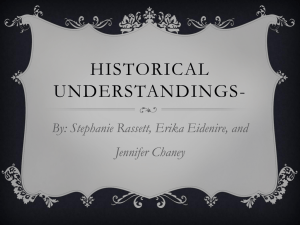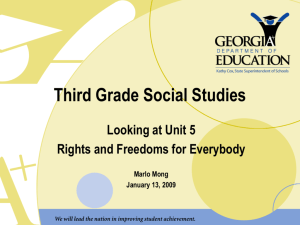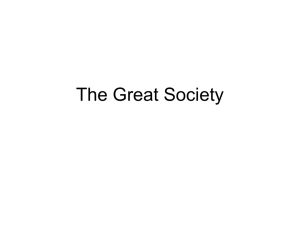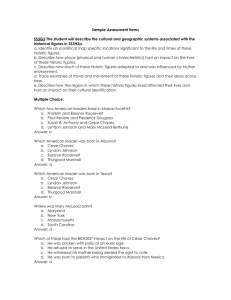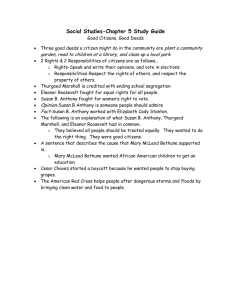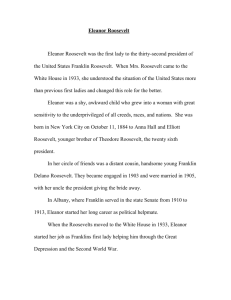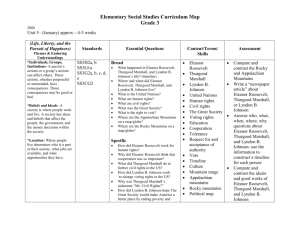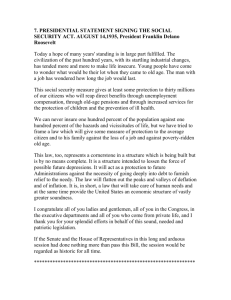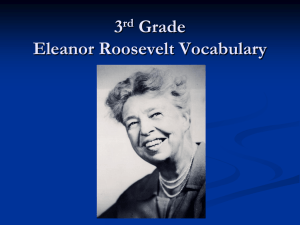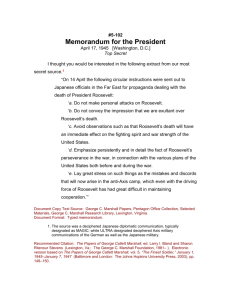3rd Grade Standards 2nd Nine Weeks
advertisement
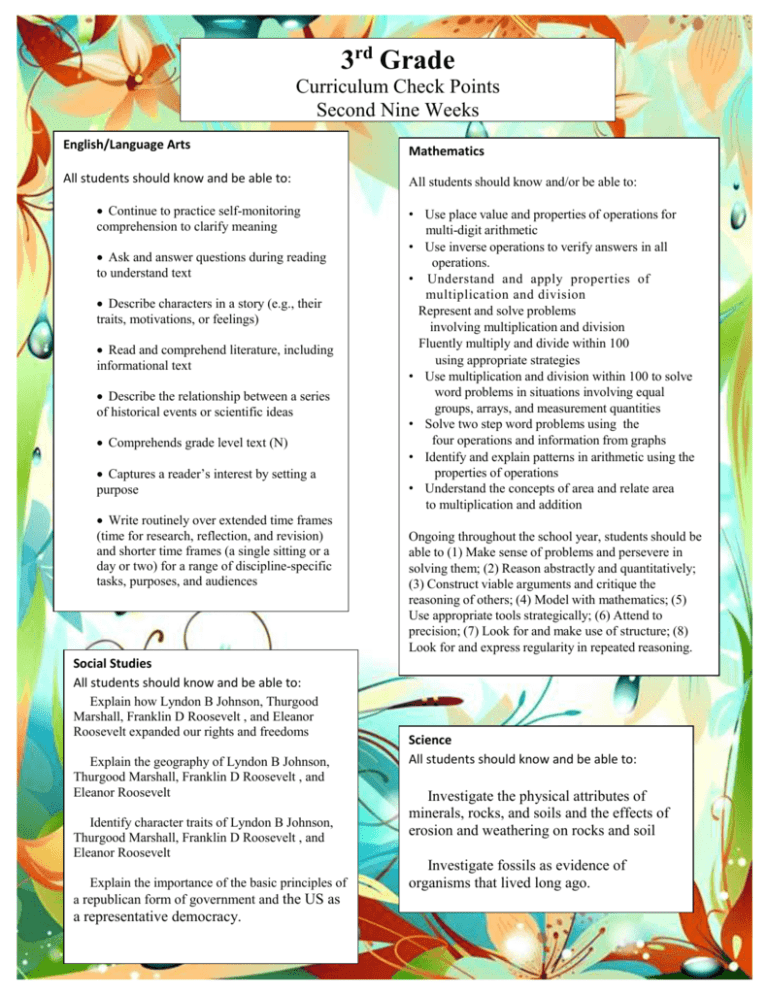
3rd Grade Curriculum Check Points Second Nine Weeks English/Language Arts Mathematics All students should know and be able to: All students should know and/or be able to: Continue to practice self-monitoring comprehension to clarify meaning Ask and answer questions during reading to understand text Describe characters in a story (e.g., their traits, motivations, or feelings) Read and comprehend literature, including informational text Describe the relationship between a series of historical events or scientific ideas Comprehends grade level text (N) Captures a reader’s interest by setting a purpose Write routinely over extended time frames (time for research, reflection, and revision) and shorter time frames (a single sitting or a day or two) for a range of discipline-specific tasks, purposes, and audiences Social Studies All students should know and be able to: Explain how Lyndon B Johnson, Thurgood Marshall, Franklin D Roosevelt , and Eleanor Roosevelt expanded our rights and freedoms Explain the geography of Lyndon B Johnson, Thurgood Marshall, Franklin D Roosevelt , and Eleanor Roosevelt Identify character traits of Lyndon B Johnson, Thurgood Marshall, Franklin D Roosevelt , and Eleanor Roosevelt Explain the importance of the basic principles of a republican form of government and the US as a representative democracy. • Use place value and properties of operations for multi-digit arithmetic • Use inverse operations to verify answers in all operations. • Understand and apply properties of multiplication and division Represent and solve problems involving multiplication and division Fluently multiply and divide within 100 using appropriate strategies • Use multiplication and division within 100 to solve word problems in situations involving equal groups, arrays, and measurement quantities • Solve two step word problems using the four operations and information from graphs • Identify and explain patterns in arithmetic using the properties of operations • Understand the concepts of area and relate area to multiplication and addition Ongoing throughout the school year, students should be able to (1) Make sense of problems and persevere in solving them; (2) Reason abstractly and quantitatively; (3) Construct viable arguments and critique the reasoning of others; (4) Model with mathematics; (5) Use appropriate tools strategically; (6) Attend to precision; (7) Look for and make use of structure; (8) Look for and express regularity in repeated reasoning. Science All students should know and be able to: Investigate the physical attributes of minerals, rocks, and soils and the effects of erosion and weathering on rocks and soil Investigate fossils as evidence of organisms that lived long ago.
